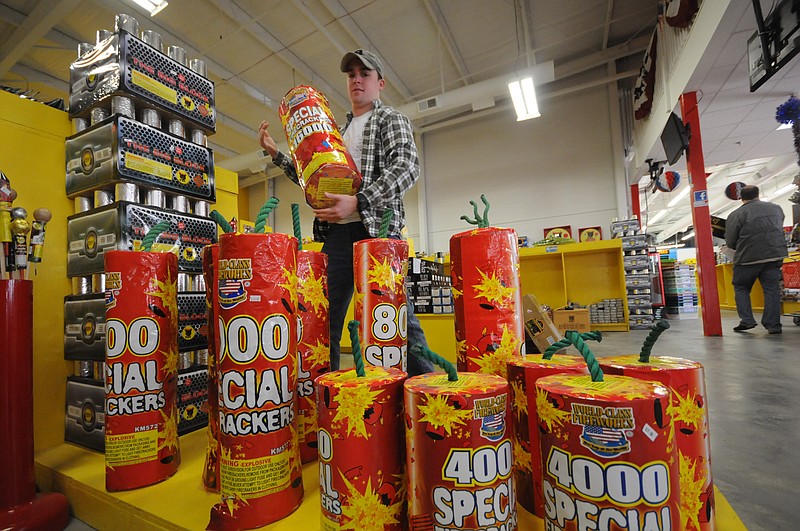Happy Fourth of July! Most folks will set off fireworks on Saturday, but some of you may continue to celebrate with those red, white, and blue pyrotechnics throughout the weekend.
Hopefully your July 4th firecrackers and cherry bombs cause no harm, with this column advising cautionary techniques for any "explosions." In fact, the National Fire Protection Association's studies on fireworks safety suggest that fireworks cause a incredible average of 18,500 fires per year. On top of that, an estimated 12,900 injuries from fireworks are handled by emergency rooms per year, with more than one-third of those occurring to children. Thanks to Prevention magazine and others for the following tips to prevent injuries and property damage.
Sparklers are not harmless. As a kid growing up, sparklers were the only fireworks my parents allowed, as I did the same with my child and grandchildren. Supposedly harmless, I was aghast to discover these aren't necessarily the case. According to the Consumer Product Safety Commission, sparklers can burn at around 2,000 degrees Fahrenheit (approximately the same temperature as an industrial blow torch). Therefore, it's imperative not to let young children play with them.
Keep your distance. Just like a firearm, NEVER ever point fireworks at another person or have any part of your body above or in the firework's expected trajectory. Only light one firework at a time and immediately step away.
Duds can still hurt us. Fireworks don't always have the same scrupulous manufacturing processes as products we bring into our homes. Further, it's not uncommon for some to light improperly, go out before fully igniting, or even explode. If the first two situations do happen, don't pick up the firework or relight it. If it's defective, doing so again could cause an accident dangerous to both the person using the firework, as well as bystanders. Even better, leave it alone and, after some time has passed, soak it with water and properly dispose of it.
Responsible disposal is crucial. Essential steps to avoid injuries and fires means to always have a water hose or bucket of water handy. If the fireworks aren't thoroughly doused with water, the holder could be in deep trouble by risking trash fires that can spread and cause injury and/or property damage.
Only light one at a time. Using multiple fireworks at a time makes it difficult to keep track of their paths and increases the chances of making a mistake
Lay off the alcohol and drugs. We've all observed people under the influence make stupid, as well as dangerous decisions; using fireworks in this manner is certainly no exception. While my statistics don't point to the number actually affected, they do show those almost-13,000 people every year go to the emergency room for care after a firework injury. We can bet a significant number of these individuals imbibed before and even during their "celebration." Please don't be one of them.
Contact Ellen Phillips at consumerwatch@timesfreepress.com
